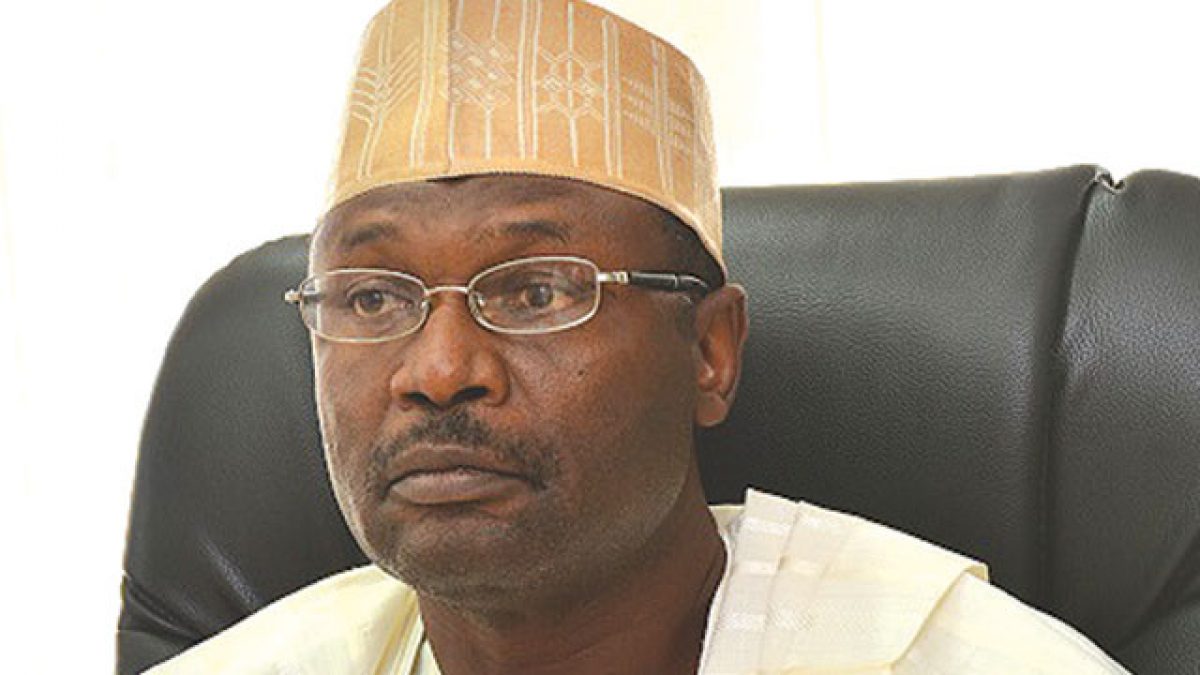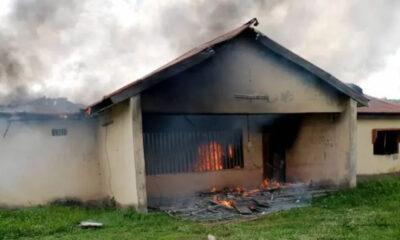Latest News
BREAKING: Senate confirms Yakubu as INEC chairman

The Senate on Tuesday confirmed Prof. Mahmood Yakubu as chairman of the Independent National Electoral Commission for a second term of five years.
Yakubu had on November 9 handed over the chairmanship of the commission to Air Vice Marshal Ahmed Mu’azu (retd.), a national commissioner of the electoral body from the North-East, when his first term ended.
President Muhammadu Buhari in October reappointed Prof. Yakubu as INEC chairman for a second and final term.
Yakubu was first appointed by President Buhari in October 2015 and assumed office on November 9, 2015, where he has been overseeing the activities of the commission.
Latest News
Ondo, Edo, Bauchi account for 70% of lassa fever cases – NCDC

The latest report of lassa fever from the Nigeria Centre for Disease Control (NCDC) showed that as of July 24, 2022, Indo, Edo and Bauchi states contributed 70 percent of the total cases of Lassa fever in the country.
Ondo, Edo and Bauchi recorded of 30 per cent, 26 per cent, and 14 per cent respectively.
It also revealed that between July 18 and 24, new confirmed cases increased to 10 from five the previous week.
Two persons lost their lives during the period under consideration. Therefore, since the beginning of the year, the total confirmed cases of Lassa fever are 857, with 164 total deaths reported.
The NCDC said, “Cumulatively from week 1 to week 29, 2022, 164 deaths have been reported with a Case Fatality Rate (CFR) of 19.1 percent, which is lower than the CFR for the same period in 2021 (23.7 percent).
“In total for 2022, 24 states have recorded at least one confirmed case across 99 Local Government Areas.
“Of all confirmed cases, 70 percent are from Ondo (30 percent), Edo (26 percent), and Bauchi (14 percent) states. The predominant age group affected is 21-30 years (Range: 0 to 90 years, median age: 30 years). The male-to-female ratio for confirmed cases is 1:0.8.
“The number of suspected cases has increased compared to that reported for the same period in 2021. One new Healthcare worker affected in Ondo State.
“National Lassa fever multi-partner, multi-sectoral Technical Working Group (TWG) continues to coordinate the response activities at all levels.”
To reduce the risk of the spread of Lassa fever, the NCDC offers the following advice: Ensure proper environmental sanitation – that is, keep your environment clean at all times, block all holes in your house to prevent rats from entering; Cover your dustbins and dispose of refuse properly. Communities should set up dumpsites very far from their homes to reduce the chances of having rodents within homes; Store foodstuff like rice, garri, beans, corn/maize, etc in containers that are well covered with tight-fitting lids.
Others are – Avoid drying foodstuffs outside on the floor, roadside where they will be exposed to contamination; Avoid bush burning which can lead to the displacement of rats from bushes to human dwellings; Eliminate rats in homes and communities by setting rat traps and other means; Practice good personal hygiene by frequent washing hands with soap under running water or use of hand sanitisers when appropriate, and visit the nearest health facility if you notice any of the signs and symptoms of Lassa fever as mentioned earlier, and avoid self-medication.
Latest News
Insecurity: FG urged to seek foreign help

The Federal Government of Nigeria has been advised to seek foreign help urgently in order to tackle the problems of insecurity in the country.
According to a statement by a renowned socio-political activist and critic, Chief Adesunbo Onitiri, this became very imperative to enable Nigerians to live in peace.
He also called on the government to declare a state of emergency on insecurity in order to tackle the problem with all the seriousness it deserved.
Onitiri said the only option left was to urgently seek foreign assistance.
“We wake up daily to hear news of our youths, women, and citizens being raped, kidnapped, maimed, and killed.
“While the country is in a state of war with the bandits, our students are out of school for over five months. All our higher institutions are under lock and key. This is unacceptable to Nigerians,” Onitiri lamented.
Onitiri explained that the Kuje Prison and the Kaduna military formations attacks were sour in the mouth. “It’s like our sovereignty as a nation has been eroded.”
Latest News
164 Die Of Lassa Fever As Cases Jump To 857

THE Lassa fever cases in Nigeria have jumped to 857 and 164 people have so far died from the disease in the first seven months of 2022.
The Nigeria Centre for Disease Control (NCDC) said this in its latest Lassa fever situation report for week 29, which showed that there were 857 confirmed cases of the disease in the country.
The NCDC said that the cases were distributed across 24 states and 99 local government areas in the country.
It said that 54 healthcare workers had been infected with the disease.
“A breakdown indicated that of all confirmed cases, Ondo has 30 per cent Edo, 26 per cent and Bauchi 14 per cent states.
“In week 29, the number of new confirmed cases increased from five in week 28, 2022 to cases. These were reported from Edo and Ondo States.
“Cumulatively from week 1 to week 29, 2022, 164 deaths have been reported with a case fatality rate (CFR) of 19.1 per cent which is lower than the CFR for the same period in 2021, 23.7 per cent.
“In total for 2022, 24 States have recorded at least one confirmed case across 99 Local Government Areas. Of all confirmed cases, 70 per cent are from Ondo, 30 per cent Edo 26 per cent and Bauchi 14 per cent cases.
“The predominant age group affected is 21-30 years range: 0 to 90 years, Median Age:30 years. The male-to-female ratio for confirmed cases is 1:0.8.
“The number of suspected cases has increased compared to that reported for the same period in 2021. One new healthcare worker was affected in Ondo State,” it said.
The News Agency of Nigeria (NAN) reported that Lassa fever is a viral hemorrhagic fever transmitted by rats.
It has been known since the 1950s, but the virus was not identified until 1969 when two missionary nurses died from it in the town of Lassa in Nigeria.
Even after recovery, the virus remains in body fluids, including semen. Neighbouring countries are also at risk, as the animal vector for the Lassa virus, the “multimammate rat” (Mastomys natalensis) is distributed throughout the region.
-

 News2 days ago
News2 days agoNLC can’t withdraw from protest it didn’t organise – Ajaero
-

 News3 days ago
News3 days agoNorthern group attacks Reps Minority Caucus for demanding Nnamdi Kanu release
-

 International14 hours ago
International14 hours agoNetanyahu, Biden hold talks over tense Gaza ceasefire
-

 News2 days ago
News2 days agoFG unveils training programme for 1,000 Nigerians in AI, blockchain
-

 News2 days ago
News2 days agoMinimum wage: Akpabio says domestic workers can’t earn less than N70,000
-

 Africa3 days ago
Africa3 days agoDozens arrested in Uganda anti-government protests
-

 metro2 days ago
metro2 days agoWanted Lagos drug baron, Temo, arrested
-

 metro2 days ago
metro2 days agoPastor remanded for allegedly defiling teenager, attempting abortion














You must be logged in to post a comment Login